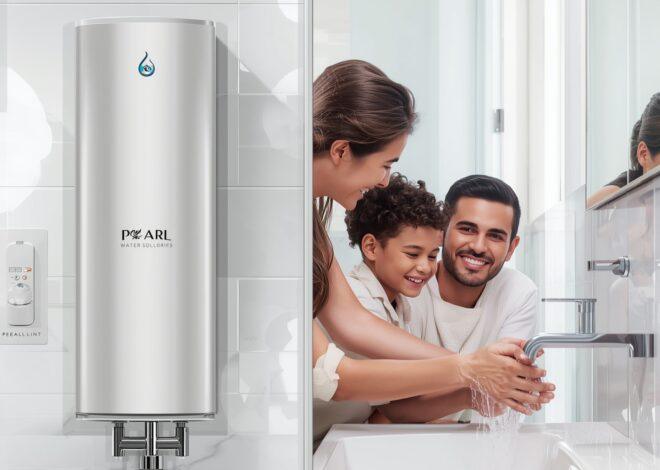Water Softener | Pearl Water Technologies
Meta Description
“Learn everything about water softeners – their working, benefits, types, and why Pearl Water Technologies provides the best hard water treatment solutions.”
Table of Contents
Introduction
Understanding Water Softeners
The Hard Water Challenge
Working Principle of a Water Softener
Main Components of the System
Advantages of Installing a Water Softener
Different Types of Water Softeners
Why Pearl Water Technologies is the Best Choice
Conclusion
FAQs
1. Introduction
Hard water is a widespread problem in many Indian households. Excess calcium and magnesium in water lead to scale buildup, poor cleaning results, and shorter appliance lifespan. A water softener is the most reliable way to tackle these issues and enjoy better quality water for everyday use.
2. Understanding Water Softeners
A water softener is a specialized filtration device designed to remove hardness-causing minerals such as calcium and magnesium. It uses ion exchange technology, replacing these minerals with sodium or potassium ions, turning hard water into soft water.
3. The Hard Water Challenge
Scale Deposits: White stains on taps, showers, and kitchenware.
Reduced Appliance Life: Geysers, washing machines, and dishwashers wear out faster.
Hair & Skin Damage: Hard water leaves hair rough and skin dry.
Extra Detergent Consumption: Less soap lather increases cleaning costs.
4. Working Principle of a Water Softener
Water Inlet: Hard water enters the mineral tank.
Ion Exchange: Resin beads trap calcium & magnesium, replacing them with sodium/potassium.
Soft Water Supply: Treated water flows to your home.
Regeneration: Saltwater solution flushes the resin, removing trapped minerals.
5. Main Components of the System
Mineral Tank: Houses the resin beads for ion exchange.
Brine Tank: Contains salt solution for regeneration.
Control Valve: Manages the flow of water and initiates regeneration cycles.
6. Advantages of Installing a Water Softener
✔ Prevents scale buildup in pipes and appliances
✔ Reduces soap and detergent usage
✔ Improves skin texture & hair softness
✔ Extends the life of washing machines, heaters, and RO filters
✔ Enhances appliance efficiency, saving electricity
7. Different Types of Water Softeners
Fully Automatic Models: Regenerate automatically with minimal effort
Semi-Automatic Models: Require manual operation for regeneration
Industrial Softeners: Designed for high-volume water treatment
8. Why Pearl Water Technologies is the Best Choice
Premium-grade resin for high efficiency
Wide capacity range from 250 LPH to large industrial units
Durable build with minimal maintenance
Available in fully and semi-automatic models
Trusted brand serving homes and industries across India
🔗 Explore our full range: https://pearlwater.in/water-softeners
9. Final Thoughts
Hard water quietly damages your plumbing, appliances, and even your personal care routine. Installing a Pearl Water Technologies Water Softener is a smart investment that ensures long-term savings, better water quality, and a healthier lifestyle.
🔗 Learn more here: https://pearlwater.in/water-softeners
10. Frequently Asked Questions
Q1. Is softened water safe for drinking?
Yes, but if you are on a sodium-restricted diet, use RO water for drinking.
Q2. How often should I add salt?
Typically every 2–4 weeks, depending on usage and water hardness.
Q3. Can a water softener lower TDS?
No, it removes hardness minerals but does not reduce TDS. Use RO for TDS control.
Q4. What is the lifespan of a water softener?
With proper care, it can last 10–15 years.
